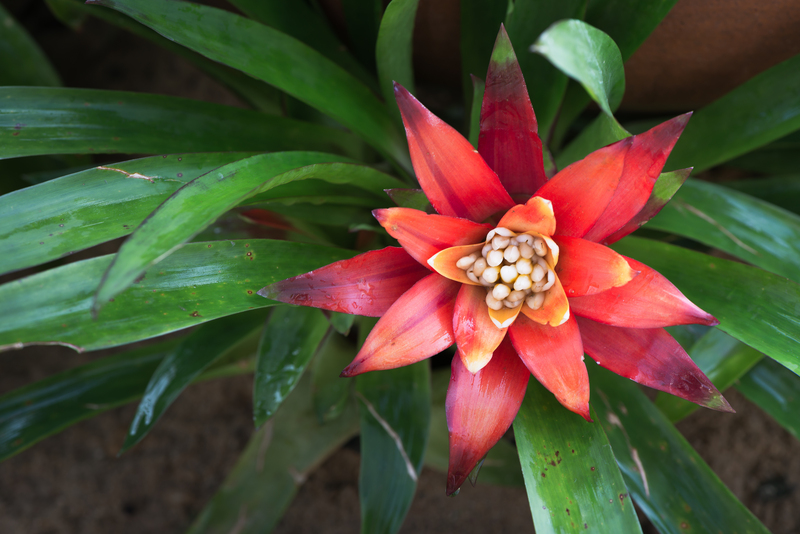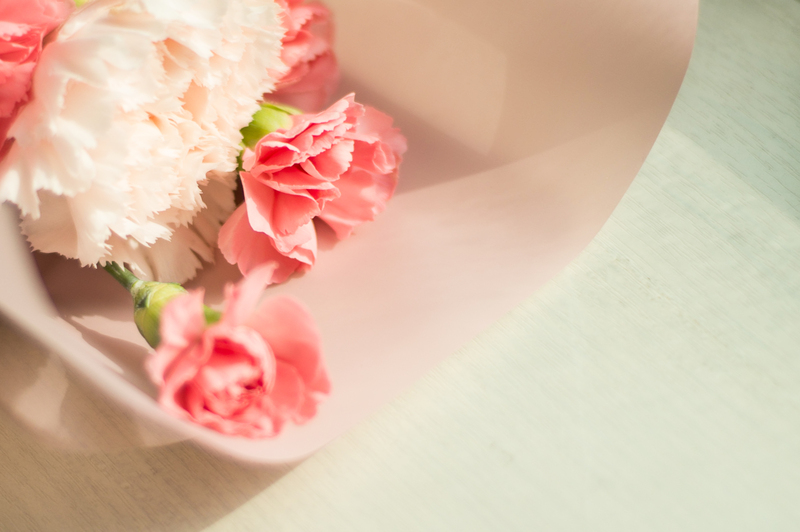Herb Garden Essentials for Aspiring Gardeners
Posted on 20/09/2025
Herb Garden Essentials for Aspiring Gardeners: A Comprehensive Guide
If you've ever dreamed of growing your own fresh herbs but felt intimidated by the process, you're not alone. Thankfully, herb gardening is one of the easiest and most rewarding ways to start your green thumb journey. This guide will introduce you to all the herb garden essentials for aspiring gardeners so you can build a fragrant, bountiful, and beautiful patch at home.

Why Start an Herb Garden?
Herb gardening is a fantastic way to infuse your home and meals with delectable flavors and aromas--right from your backyard, balcony, or kitchen windowsill. Aside from culinary purposes, many herbs offer medicinal benefits, ornamental beauty, and even help in attracting pollinators to your garden.
- Fresh Flavors: Enjoy the full taste you can only get from just-picked herbs.
- Save Money: Growing herbs, even indoors, is much less expensive than frequent store purchases.
- Therapeutic and Fun: Gardening soothes the mind, provides gentle exercise, and fosters a sense of accomplishment.
- Eco-Friendly: Reduce plastic packaging and food miles by growing at home.
1. Choosing the Right Location
Sunlight: The Secret Ingredient
Whether you dream of a windowsill herb garden or a lush outdoor patch, sunlight is crucial for healthy, vigorous growth. Most culinary herbs prefer at least 6-8 hours of direct sunlight daily.
- South-facing windows are ideal indoors.
- Outdoor gardens should be situated in sunny spots, free from tree shade or tall structures blocking the sun.
- Herbs like mint and parsley can tolerate less light, but classics such as basil and thyme thrive in bright conditions.
Containers vs. Garden Beds
You can start your herb garden in the ground, in raised beds, or in pots. Each option has its pros and cons:
- In-ground beds provide ample room and keep plants from drying out quickly.
- Raised beds offer excellent drainage and easy access for tending and harvesting.
- Containers and window boxes are flexible for small spaces and allow you to rearrange plants as needed, making them perfect for beginners.
2. Selecting Essential Herbs to Grow
Choosing what to plant is one of the most exciting aspects of building a beginner herb garden. Consider your cooking style, available space, and climate. Here is a list of must-have culinary herbs for new gardeners:
- Basil: Perfect for Italian, Thai, and Mediterranean dishes. Loves warmth and full sun.
- Parsley: Versatile, easy to grow, and full of vitamins. Thrives in partial shade or sun.
- Rosemary: Aromatic and evergreen, great for roasts and breads. Requires good drainage and sunlight.
- Thyme: Low maintenance; excellent for stews and rubs.
- Cilantro: Key for Mexican and Asian cuisine. Prefers cooler temperatures.
- Mint: Invigorating for drinks, desserts, and sauces. Plant in pots--it spreads aggressively!
- Chives: Mild onion flavor; splendid for salads, eggs, and garnishing.
It's smart to start small with 3-5 varieties and branch out as you gain confidence. Check your local gardening center for seedlings and seeds that are well-suited to your region.
3. Understanding Soil, Water, and Nutrients
Soil: The Foundation of a Healthy Herb Garden
Most herbs prefer well-draining soil with a neutral to slightly alkaline pH (between 6.0 and 7.5). Here's how to ensure your herbs have the best start:
- Use a quality potting mix labeled for herbs or vegetables.
- Amend garden beds with aged compost for fertility and structure.
- Avoid heavy clay or soggy soils--these can lead to root rot and poor growth.
Watering Wisely
Herbs are somewhat drought tolerant but require regular watering, especially when first planted or during hot weather. However, overwatering is one of the biggest mistakes new herb gardeners make.
- Check soil moisture with your finger; water only when the soil is dry about one inch below the surface.
- Morning is the best time to water--this reduces evaporation and disease risk.
- Make sure pots have drainage holes to prevent soggy roots.
Feeding Your Herbs
Herbs generally need less fertilizer than vegetables, but they do benefit from occasional feeding.
- Use a balanced, organic fertilizer or liquid fish emulsion monthly.
- Avoid overfeeding--too much nitrogen can produce lush leaves but reduce flavor.
4. Planting and Caring for Your Herb Garden
Starting from Seeds vs. Seedlings
Many herbs can be grown from seeds right in your garden or containers, while others are easier to begin as nursery-bought seedlings.
- Seed-starting: Parsley, basil, cilantro, and chives grow well from seeds.
- Go with seedlings: Rosemary, sage, and thyme can be tricky to start from seeds. Purchasing established young plants saves time.
Planting Tips
- Leave space: Give each plant room to spread as it grows.
- Label everything: Place durable markers to avoid confusion as seedlings sprout.
- Group by need: Plant similar herbs together (sun-lovers with sun-lovers, moisture-lovers with their kind) for easy care.
Pruning and Harvesting
Regular harvesting encourages bushier, healthier plants. Snip leaves and stems just above a pair of leaves--never remove more than a third of the plant at once. For perennial herbs, prune after flowering to promote new growth.
5. Common Challenges & Solutions for New Herb Gardeners
Pests and Diseases
Even the best-loved herb gardens occasionally encounter unwelcome visitors. Here's how to handle common problems without resorting to harsh chemicals:
- Aphids: Wipe off with a damp cloth or spray with a mild soapy solution.
- Fungal diseases: Ensure good airflow; avoid overhead watering and mulch with gravel.
- Snails and slugs: Remove by hand or use beer traps near vulnerable plants.
- Mint rust or powdery mildew: Remove affected foliage and consider a space between plants for airflow.
Leggy Growth and Poor Flavor
If your herbs are growing tall and spindly, they might not be getting enough light. Move them to a sunnier spot or consider supplemental grow lights indoors.
Lack of flavor often ties back to over-fertilizing or harvesting too late. Pick leaves and stems while young and tender for the best taste and aroma.
6. Enhancing Your Herb Garden Experience
Creative Herb Garden Ideas
- Vertical planters: Use wall-mounted pockets or stacked pots for small spaces.
- Windowsill gardens: Brighten your kitchen and have herbs handy while cooking.
- Companion planting: Combine herbs with veggies--basil with tomatoes, for example--to repel pests and boost growth.
Harvesting and Preservation
Enjoy your harvest fresh, or save some for later:
- Drying: Bundle small stalks upside down in a cool, dry spot. Crumble and store in airtight containers.
- Freezing: Chop herbs and freeze them in ice cubes with a bit of water or oil for easy use.
- Infusions: Steep herbs in vinegar, olive oil, or honey for delightful homemade condiments.
7. Beginner Herb Gardeners' Toolkit
You don't need a shed full of specialized tools to be successful with herb gardening, but a few simple implements will make tending your herb garden easier:
- Hand trowel: Perfect for planting and moving soil in pots or beds.
- Pruning shears: Sharp, precise snips make harvesting and pruning simple.
- Watering can or sprayer: A gentle spray tip prevents disturbing seeds or delicate seedlings.
- Gardening gloves: Protect your hands, especially when working with thorns or prickly plants like rosemary.
- Plant labels: Essential for identifying each herb, especially in early stages.
8. Benefits of Growing Your Own Herb Garden
- Better Taste & Nutrition: Fresh herbs pack more flavor and nutrition than dried ones.
- Aesthetic Value: Herbs offer lush greens, beautiful blooms, and fragrances.
- Sustainability: Home herb gardens reduce plastic waste and your carbon footprint.
- Cost-effective: Grow once, harvest for months or even years.
- Wellness: Nurturing plants is therapeutic and connects you with nature.

9. Frequently Asked Questions About Starting an Herb Garden
Can I grow herbs indoors all year?
Absolutely! Growing indoor herb gardens is possible with enough light--either from a sunny window or with supplemental grow lights.
How often should I fertilize my herbs?
Most herbs don't need frequent feeding. Use a diluted, balanced organic fertilizer once a month or less, especially if your soil is rich in organic matter.
What herbs are easiest for beginners?
Try basil, parsley, chives, mint (in pots), and oregano. These are forgiving and grow quickly, giving you fast results.
How can I prevent pests in my herb garden?
Encourage natural predators (like ladybugs), avoid overwatering, and keep your garden tidy. Inspect regularly to catch problems early.
Conclusion: Grow Your Passion with Essential Herb Gardening Skills
Embracing a new hobby can be rewarding, especially when you see--and taste--results right away. By following these herb garden essentials for aspiring gardeners, you'll enjoy a newfound confidence in growing, harvesting, and using fresh herbs at home. Whether you're aiming for a windowsill kitchen oasis or dreaming of sprawling outdoor beds, the world of herb gardening is vibrant, accessible, and rich in satisfaction.
Now is the perfect time to dig in, plant your favorite herbs, and savor the experience--one fresh leaf at a time!
Latest Posts
3 Steps to a Weed-Free Sanctuary in Your Backyard
Herb Garden Essentials for Aspiring Gardeners
Simplify Your Gardening with 5 Low Maintenance and Affordable Tips

